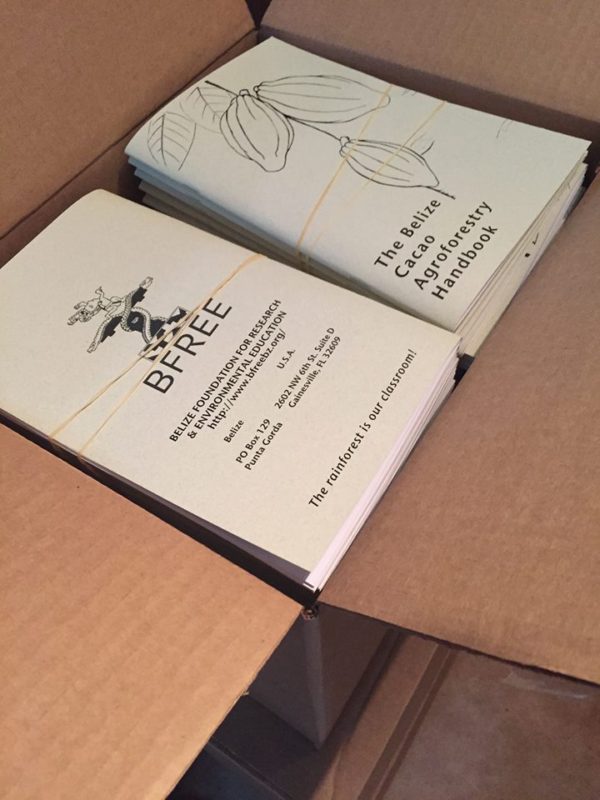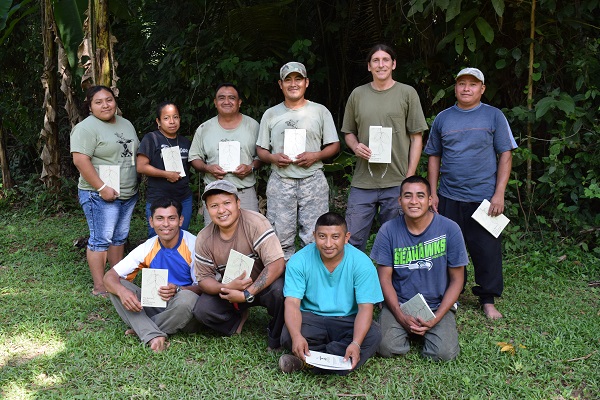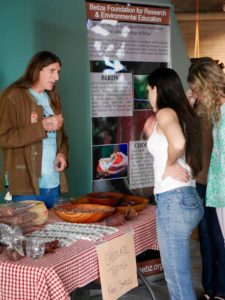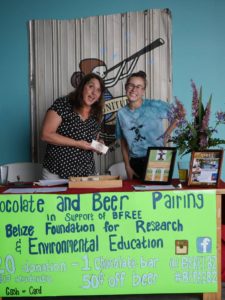BFREE Fundraiser in Washington, D.C.
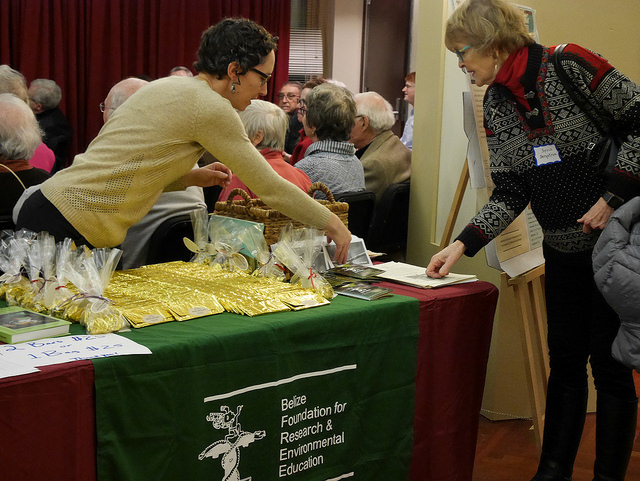
BFREE volunteer, Lisa Ramsden shares informational materials with guests as they arrive. More photos from the event can be found on Flickr here!
On February 4th, BFREE hosted a social and fundraiser at Levine Music in Washington D.C. The event was attended by over 120 supporters interested in hearing about chocolate’s connection to rainforest conservation.
The event marked the launch of a new campaign to raise capital for the Cacao Discovery Center, The CDC will be a centralized multipurpose educational facility dedicated to enhancing the learning environment at BFREE and promoting cacao-based agroforestry as a strategy to conserve and restore tropical rainforests in Belize. Once complete, the solar-powered facility will serve the many types of visitors that come to BFREE including students, researchers, farmers, conservation practitioners, and the public in general.
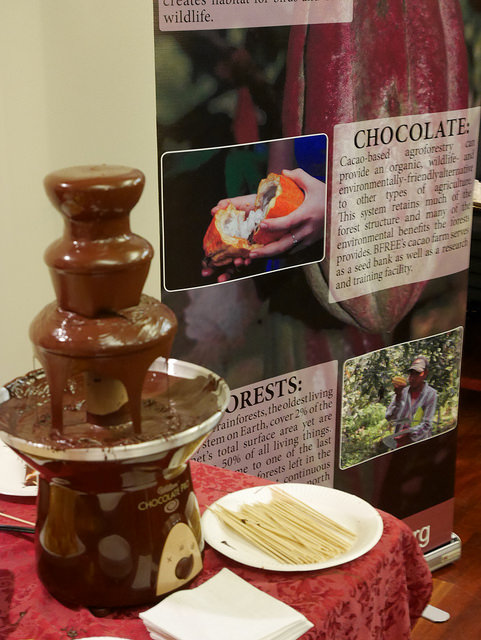
During the event, guests indulged their taste buds with BFREE’s finest hand-crafted chocolate made in Florida from cacao beans grown at the field station in Belize. The chocolate was presented in tasting squares, as whole roasted beans, as nibs and as a fondue from a chocolate fountain. Fresh fruit, as well as a variety of hors d’oeuvres were offered to guests. In classic, Willy Wonka style, gold-foil wrapped chocolate bars and hearts were available for Valentine’s gifts. The nights’ specialty cocktail; a ‘Belizean Rum Old Fashioned’ was created with homemade infused bitters using BFREE cacao nibs and Belizean One Barrel Rum.
A silent auction included food and handcrafted items all originating in Belize and including Marie Sharp’s hot sauces, beautiful wildlife and forest paintings, Maya hand-crafts, lovely hardwood bowls, and, of course, a variety of cacao products like nibs, cocoa powder, and soap.
Executive Director, Jacob Marlin shared some of BFREE’s history and described the growth of both the organization and field station over the past 22 years. He highlighted stories of the many projects BFREE has implemented, and focused on how growing cacao (chocolate) trees under the rainforest canopy is an important strategy for restoring and conserving tropical rainforests in Belize.
If you would like to support BFREE in our efforts to build the Cacao Discovery Center please consider making a a donation here: Donate now to support the Cacao Discover Center!
If you have any questions, please contact us by email at: contact@bfreebz.org
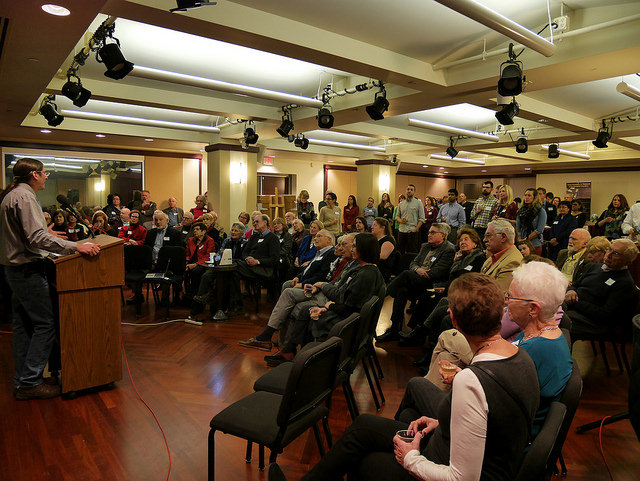
More Photos of the event in Washington, D.C. are on Flickr here!
Special thanks to Levine Music for providing the perfect event location and excellent staff support.
Also, thanks to the artisans who created wonderful works of art just for this occasion: Grayson Sierra, Greta Leslie, Avelina Choc and Mr. Tyrone. We are grateful to event volunteers who donated their time and expertise: Kelly Sanville, Katie Bates, Lisa Ramsden, Shaman Marlin, Sofia Marlin, Hyla Marlin, Tierra Maclean, B. Trewin and Donato Alvarez.
Finally, thanks to David and Jackie Marlin without whom this event could not have been possible.

